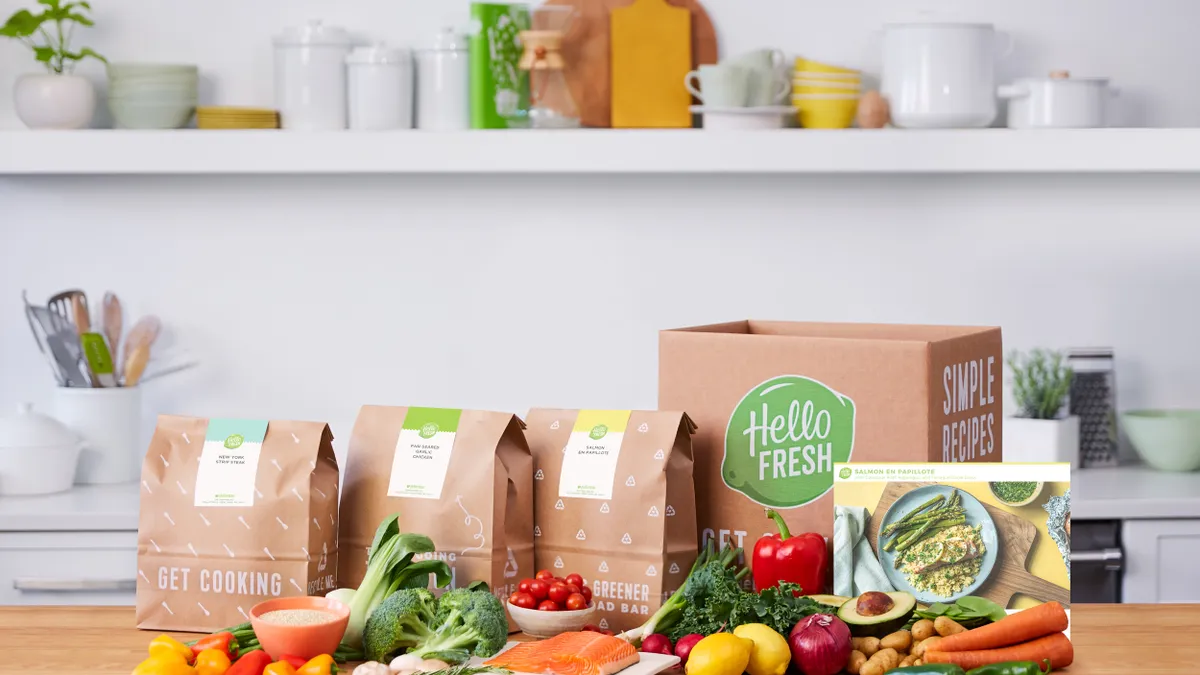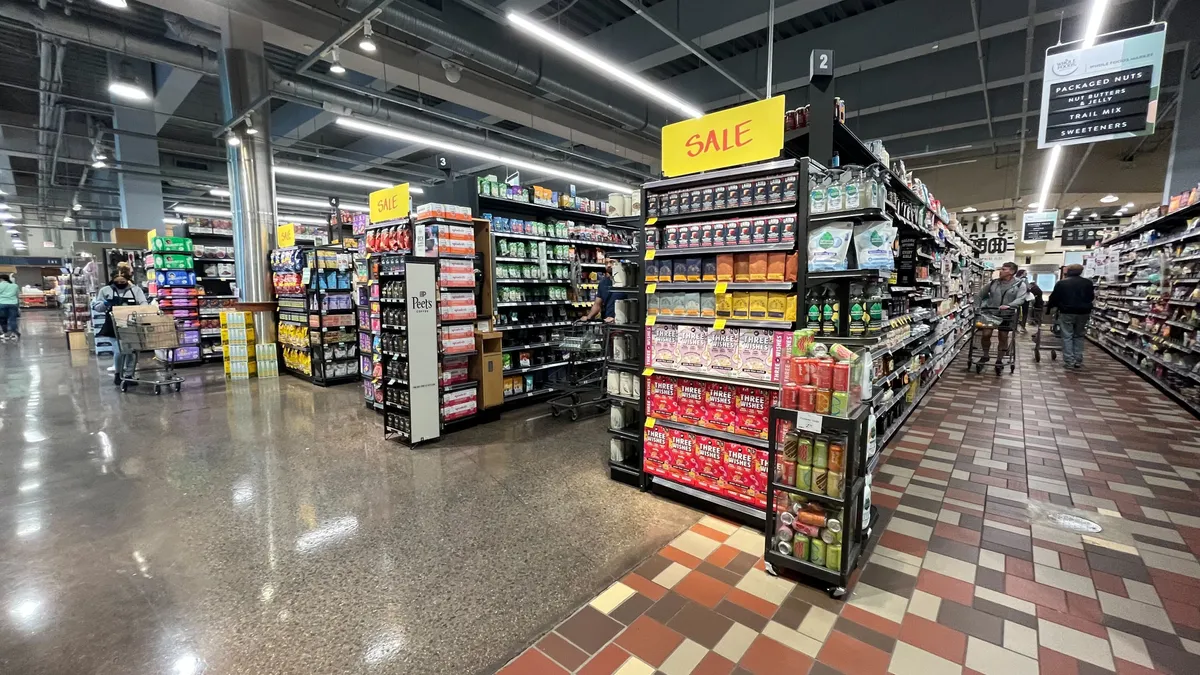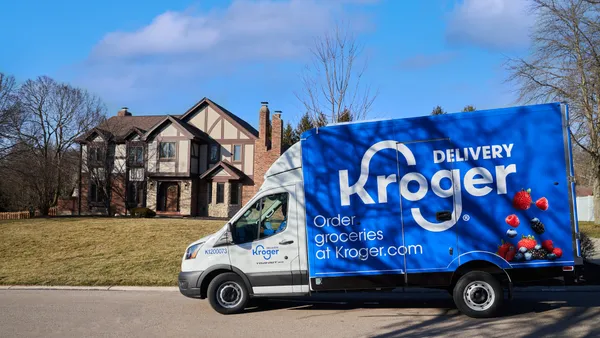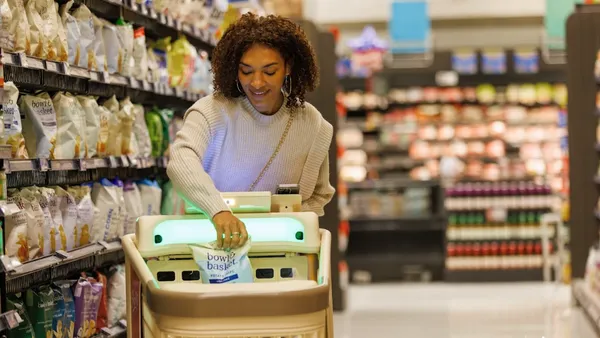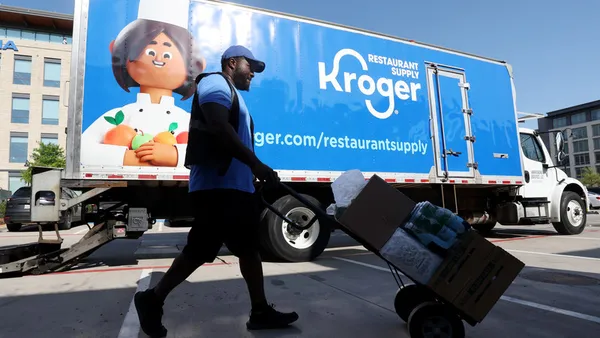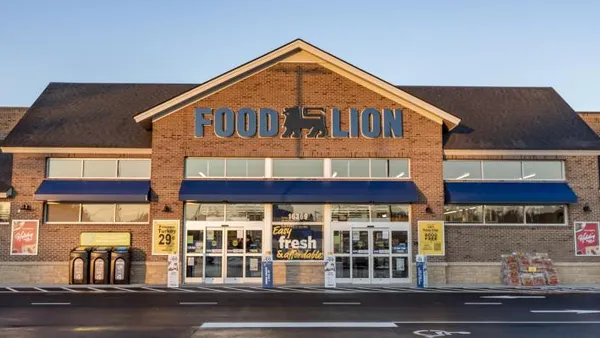Dive Brief:
- HelloFresh is rolling out more sustainable packaging for its meal kits, replacing box liners with recyclable ClimaCell liners created by sustainable design company TemperPack. The new liners are similar in performance to Styrofoam, but can be disposed of in curbside recycling bins. The liners will also be used in Green Chef kits, which HelloFresh recently acquired.
- Box liners make up about 30% of the volume of each HelloFresh box, and with the new liners, HelloFresh says it can divert as much as 15,000 tons of packaging waste from landfills each year. Nearly one in five consumers reports waste as an issue when purchasing meal kits, and HelloFresh has received similar feedback.
- “The ClimaCell recyclable liners are another example of how we listen to our customers that want quality fresh food conveniently delivered to their doorstep but with the most environmentally-friendly packaging the meal kit category can deliver on,” Uwe Voss, managing director and COO at HelloFresh, said in a press release.
Dive Insight:
The meal kit industry, worth $5 billion last year, has received extensive criticism for wasteful packaging, and HelloFresh is not exempt. Many meal kit services are viewed as environmentally unfriendly — even Blue Apron, which has always offered recyclable packaging. The sentiment seems to be that even eco-friendly packaging can still be difficult to recycle, and producing it can still negatively affect the environment.
While this new initiative is a good look for HelloFresh, it is unlikely to set it apart in any major way. In addition to Blue Apron’s recyclable packaging, Sun Basket has earned consumer goodwill for its eco-friendly packaging approach as well. These three companies are arguably the most popular meal kit services at the moment, which makes HelloFresh late to the party on sustainable packaging among top competitors. What’s more, the liner is still just a portion of the packaging that comes with each box. HelloFresh will also need to address the individual packaging of each ingredient included in its meal kits to fully satisfy environmentally conscious customers.
Still, German HelloFresh — which went public at the end of 2017 — has been cited as one of the most competitive startups in the game. The company more than doubled its customers in the U.S. last year, though it has yet to turn a profit. Ultimately, while sustainable packaging is a key priority among meal kit customers, it is likely just one item on a major list of to-do’s that HelloFresh must check off as it seeks to keep growing.
Though popular, experts consider the entire meal kit space to be volatile, with perhaps too many players on the market, a difficulty turning profits and an unproven business model. Fierce competition, frequent M&A activity and fickle consumer sentiment around meal kits are all major challenges facing these companies. Something as simple as packaging could, in fact, cause a company to lose sales, or outright fail, if it doesn’t stand out among the rest.



